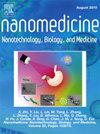Liposomal drug delivery system for lung diseases: Recent advancement and future perspectives
IF 4.6
2区 医学
Q2 MEDICINE, RESEARCH & EXPERIMENTAL
Nanomedicine : nanotechnology, biology, and medicine
Pub Date : 2025-08-29
DOI:10.1016/j.nano.2025.102855
引用次数: 0
Abstract
Lung diseases such as asthma, chronic respiratory diseases, and lung cancer are among the most prevalent and vulnerable health conditions. Various therapeutic approaches, including nucleic acids, peptides, and small molecules have been developed along with different delivery strategies for their treatment. Liposomes have been recognized as promising delivery candidates attributed to their biocompatibility, biodegradability, and ability to encapsulate both hydrophilic and hydrophobic drugs effectively. Their composition closely resembles pulmonary surfactants and can facilitate targeting deep lung tissue while also allowing localized drug delivery with less systemic exposure. The most rigorously explored route for delivering liposomal formulations to the lungs is inhalation. Additionally, liposomes help combat antimicrobial resistance and enhance targeted drug delivery by utilizing stimuli-responsive liposomes or modifying their physicochemical properties. Herein, we explore the liposomal delivery of different classes of drugs, their therapeutic potential in the treatment of lung disease, and discuss perspectives on clinical translation.

肺部疾病的脂质体给药系统:最新进展和未来展望。
哮喘、慢性呼吸系统疾病和肺癌等肺病是最普遍和最脆弱的健康状况。各种治疗方法,包括核酸、多肽和小分子,以及不同的治疗递送策略已经被开发出来。脂质体由于其生物相容性、生物可降解性以及有效封装亲疏水药物的能力而被认为是有前途的递送候选者。它们的组成与肺表面活性剂非常相似,可以促进靶向肺深部组织,同时也允许局部给药,减少全身暴露。将脂质体配方输送到肺部的最严格探索的途径是吸入。此外,脂质体通过利用刺激反应性脂质体或改变其物理化学性质,帮助对抗抗菌素耐药性并增强靶向药物递送。在此,我们探讨了不同类别药物的脂质体递送,它们在治疗肺部疾病中的治疗潜力,并讨论了临床翻译的观点。
本文章由计算机程序翻译,如有差异,请以英文原文为准。
求助全文
约1分钟内获得全文
求助全文
来源期刊
CiteScore
11.10
自引率
0.00%
发文量
133
审稿时长
42 days
期刊介绍:
The mission of Nanomedicine: Nanotechnology, Biology, and Medicine (Nanomedicine: NBM) is to promote the emerging interdisciplinary field of nanomedicine.
Nanomedicine: NBM is an international, peer-reviewed journal presenting novel, significant, and interdisciplinary theoretical and experimental results related to nanoscience and nanotechnology in the life and health sciences. Content includes basic, translational, and clinical research addressing diagnosis, treatment, monitoring, prediction, and prevention of diseases.

 求助内容:
求助内容: 应助结果提醒方式:
应助结果提醒方式:


